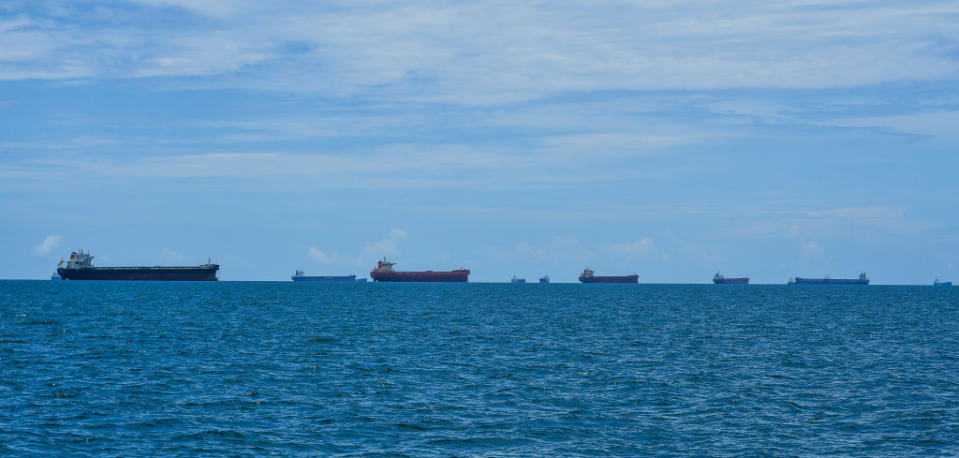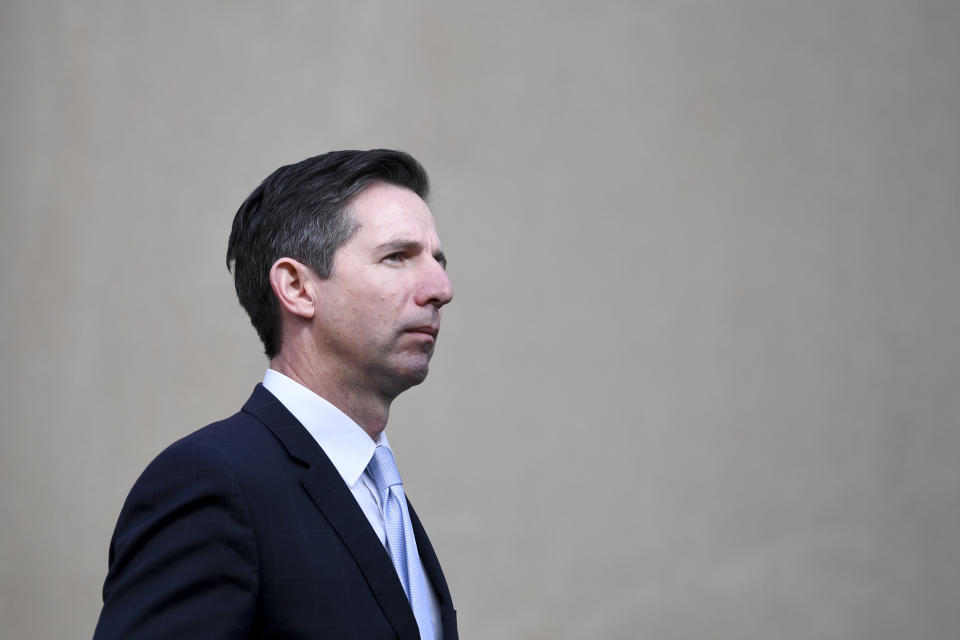'You can't put the genie back': Warning over China's escalating trade war with Australia
A diplomatic row between China and Australia has evolved into a burgeoning trade war and experts worry the escalating tensions have already inflicted damage to Australia’s position in the world.
In the wake of Australia’s push for a global inquiry into the coronavirus pandemic, China has sought to use its economic might to intimidate the Australian government.
First it was beef, then it was barley, and now China has made moves prompting concerns Australian coal exporters could face a tougher time selling the commodity into the nation.
It’s all under the guise of bureaucratic or trade technicalities, but the message is clear: fall in line.
Labelled as economic coercion by certain Australian politicians, the posturing and efforts by China to strong-arm the Australian government will put a lasting strain on the bilateral relationship which will have ongoing consequences, says Dr Darren Lim, an expert in international relations at the ANU.
Dr Lim has a weekly podcast called Australia in the World which looks at the intersection of geopolitics and economics, and he fears the current trade spat will taint future relations between the two countries.
“One of the things I learned doing research into economic coercion ... is that once the idea of punishment is in folks’ minds, suddenly everything is seen through that lens,” Dr Lim wrote on Thursday.

“So all the normal slings and arrows of trade, small disruptions, rule changes, misunderstandings, they’re all potential coercion.”
This is the problem, Dr Lim asserts, with raising the spectre of economic punishments for politics: “You cannot put the genie back in the bottle quickly”.
And that is not a good place for Australia’s relationship with our number one trading partner, and biggest export market, to be.
Australia's share in the value of exports to China reached a record 38 per cent or $117 billion last year, according to analysis conducted by the ANU.
“Maybe that’s the point. Maybe Beijing wants Australia to feel that anything, everything, could be at risk,” Dr Lim wrote on Twitter.
China represents Australia’s largest source of international students, our most valuable tourism market, our largest agricultural goods market and a major source of foreign direct investment. Its ability to use these markets as economic sticks with which to hit Australia is significant.
“But it only builds the reputation of bullying,” Dr Lim said. “At the margins, over time it erodes the economic relationship.”

As trade tensions have boiled over in recent weeks, there has been growing calls for Australia to diversify exports away from the Chinese market to reduce the capacity for the Chinese Communist Party to threaten Australia in such a way.
Dr Lim thinks such a scenario would likely make all parties economically worse off, but conceded that “many will see [it] as a necessary price to pay”.
Australia ‘very concerned’ by China’s latest move
The Chinese government is reportedly warning state-owned power plants not to buy new shipments of Australian thermal coal and instead favour domestic products.
Deputy Prime Minister Michael McCormack said Trade Minister Simon Birmingham and Australian diplomats were working to fix the issue and soothe the trade tensions.
“Of course we're very concerned by it,” he told the ABC on Friday.
“But we have a two-way relationship with China. China needs Australia as much as Australia needs China and we want to make sure that whatever we do is in a careful and considered way.”
China delivers 'huge blow' to Australia amid global support for virus inquiry
'The dog of the US': Chinese citizens blast Australians in wake of spat
It’s not the first time China has used coal to send a message to Australia after it temporarily blocked coal imports from Australia at its ports last year.
Beijing has already slapped a prohibitive 80 per cent tariff on Australian barley, while four major abattoirs have been banned from sending red meat to China.
Mr McCormack said Chinese steel mills and power plants would need high-quality Australian coal to operate.
“We want to make sure that our coal exports have a destination.
“China has long been a customer of ours. They know the quality of our coal, they know the quality of our iron ore and other resources.”
However, China is in no hurry to resolve the dispute with Trade Minister Senator Birmingham being ignored by his Chinese counterpart.

Home Affairs Minister Peter Dutton said the stonewalling was part of China's tactics.
“We don't think they've got a legal basis for imposing these tariffs and we want them to change their position,” he told the Nine Network.
He said Australia would stand firm in its values after a push for global coronavirus inquiry upset China.
Thermal coal, which is used to generate power, is Australia's second largest export to China after iron ore.
China has also announced new supervising rules for iron ore, with opinion divided on its impact for Australian exporters.
Senator Birmingham is hopeful the changes could speed up the entry of iron ore into China through fewer batches being checked.
with AAP
Do you have a story tip? Email: newsroomau@yahoonews.com.
You can also follow us on Facebook, Instagram and Twitter and download the Yahoo News app from the App Store or Google Play.




